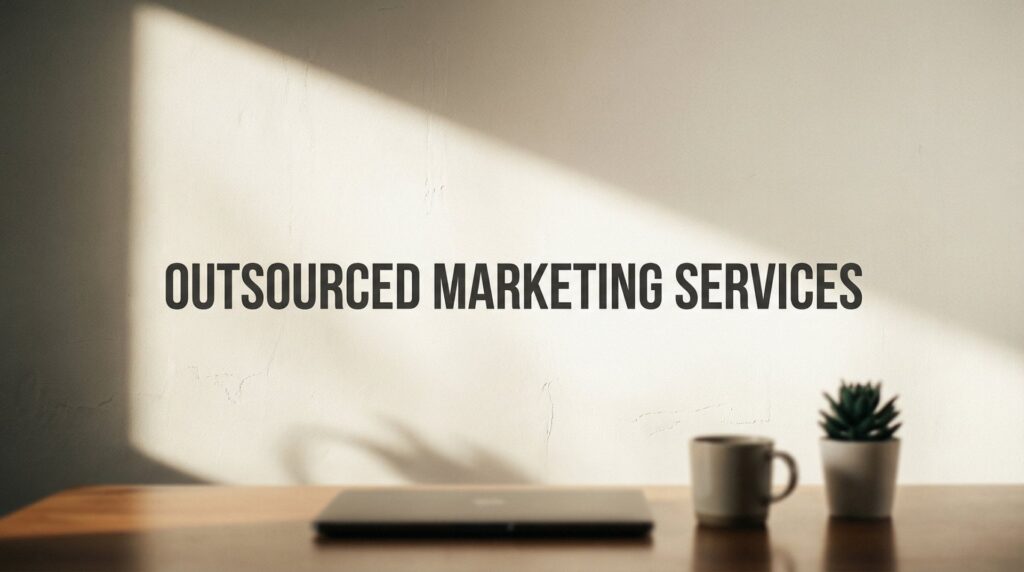Relying on word-of-mouth referrals and local flyers doesn't cut it anymore if you want to keep your appointment book full. SEO for acupuncturists isn't a complex technical process. It's simply about making sure people in your community searching for pain relief can find you online.
Getting your clinic to show up on Google is the most powerful way to create a steady stream of new patients. This guide will walk you through the essential steps.
Why Your Practice Can't Afford to Ignore SEO
When someone looks for a new healthcare provider, their first move is almost always a Google search. People in your town are typing things like "acupuncture for back pain near me" or "fertility acupuncture [Your City]" every day. If your website isn't on the first page, your competitors' are.
In Short: Your website is your digital front door, and SEO is the sign that guides people to it.
SEO works around the clock, attracting the exact people you want—those already looking for the holistic solutions you offer. It's about being the clear, helpful answer when someone nearby needs you most.
SEO vs Traditional Marketing for Your Clinic
Every marketing dollar counts when growing your practice. While traditional methods have a place, SEO offers long-term value that flyers and print ads can't match. Here’s a quick breakdown.
| Feature | SEO (Search Engine Optimization) | Traditional Marketing (e.g., Print, Local Ads) |
|---|---|---|
| Audience Targeting | Reaches patients actively seeking your services. | Broad, untargeted audience. |
| Longevity | Efforts build on each other, providing lasting value. | Short-term impact; stops when you stop paying. |
| Cost-Effectiveness | Higher upfront investment, but incredible long-term ROI. | Requires continuous spending for continuous results. |
| Trackability | Highly measurable results (traffic, calls, bookings). | Difficult to track direct impact on new patients. |
| Trust Factor | Builds authority and credibility over time. | Often seen as a one-off advertisement. |
Ultimately, SEO is an investment in a permanent asset for your clinic. Traditional ads are a temporary rental.
Moving Beyond "Pay-to-Play" Marketing
Old-school advertising is a treadmill. You pay for a mailer, it runs for a week, and then it's gone. SEO is different. It's an investment that grows over time.
A well-optimized website becomes a powerful, long-term asset. The work you do today—like fine-tuning service pages or gathering patient reviews—can bring new patients for months or even years. That's what makes it a cornerstone of any sustainable doctor marketing plan.
The real magic of SEO is that it connects you with patients at the exact moment they need you. You’re not interrupting their day with an ad; you’re providing the solution they are actively looking for.
The Real-World Benefits of Showing Up Online
Investing in SEO for acupuncturists delivers tangible results: more website visits, more phone calls, and more patient bookings. Unlike paid ads that vanish when the budget stops, SEO provides ongoing visibility.
This visibility also builds trust. When potential patients see your clinic consistently at the top of local search results, they view you as a credible leader in your community. To amplify this, pairing SEO with a winning small business social media strategy can be incredibly effective.
How to Win the Local Search Game
For an acupuncture clinic, your best patients are the ones nearby. This is where local SEO becomes your secret weapon.
When someone in your town searches "acupuncture for back pain," you want your clinic to be the first name they see. The cornerstone of this strategy is your Google Business Profile (GBP).
Your GBP is the info box that appears in Google search and on Google Maps. It shows your clinic's name, hours, phone number, and patient reviews. It’s often the very first impression a potential patient has of your practice online.
Your Google Business Profile Is Your Digital Front Door
Imagine your GBP as your clinic's digital storefront. A neglected profile doesn't inspire confidence. A polished, optimized profile is welcoming and makes it easy for someone to book an appointment.
First, claim and verify your profile. After that, the real work begins. An active, updated profile sends powerful signals to Google that your business is relevant for local searches.
Fill out every section you can:
- Your Exact Clinic Name: Use your real business name, without extra keywords.
- Correct Address and Phone Number: This must be 100% consistent everywhere online.
- A Clear Service Area: Define the specific neighborhoods and towns you serve.
- A Compelling Business Description: Talk about your unique approach to acupuncture. Weave in main keywords naturally.
Key Takeaway: A complete and consistently updated Google Business Profile is the single most important thing you can do to rank in local search results and on Google Maps.
Go Way Beyond the Basics with Your Profile
Just filling in the basic info isn't enough to beat competitors. Use other GBP features to showcase your expertise.
Get specific about the treatments you offer.
- Don't just say "acupuncture."
- List services like cupping therapy, fertility acupuncture, cosmetic acupuncture, or TCM for anxiety.
- This helps you appear when people search for the specific help they need.
The Q&A feature is another goldmine. Add your own frequently asked questions and answer them yourself. Think about what patients always ask, like "What should I expect during my first session?" Answering these publicly saves time and shows you're transparent.
This infographic gives a great overview of how on-page SEO elements—the stuff on your website that your GBP links to—all work together.
As you can see, optimizing things like the title tags and meta descriptions on your service pages directly tells Google what you're about, which helps you rank for those local searches.
The Power of NAP Consistency (and What Citations Are)
Outside of your GBP, Google scans the web to verify your business info. This is where "citations" come in. A citation is any online mention of your clinic's Name, Address, and Phone number (NAP).
These appear in online directories like Yelp, Yellow Pages, and health-specific sites. The key here is unwavering consistency. If your address is "123 Main St." on your GBP and "123 Main Street" on Yelp, it confuses Google and can hurt your local ranking.
Here's the process:
- Audit Your Current Citations: Find where your clinic is listed and hunt down inconsistencies.
- Clean Up the Mess: Manually correct any listings with the wrong name, address, or phone number.
- Build New, Clean Citations: Get your practice listed in reputable directories with the correct NAP.
This tedious work builds a rock-solid foundation of trust with search engines.
Why Local SEO Is a Race You Can Actually Win
Competing for broad, national keywords is tough. But becoming the top acupuncturist in your city is a race you can win. This local focus is a huge advantage.
Consider this: nearly 75% of people never scroll past the first page of Google. Showing up on page one for local searches is everything. A focused local effort can boost your visibility in as little as 30 days. You can get a better sense of these timelines by exploring how to rank your practice's website.
Turning Your Website Into a Patient Magnet
Getting someone to click on your website from Google is only half the battle. Your site must convince them you're the right acupuncturist. This is where on-page SEO comes in—optimizing the content on your website to turn visitors into booked patients.
In Short: Your Google Business Profile gets them to the door; your website invites them inside.
A well-built site clearly communicates your expertise, builds trust, and makes it simple for someone to take the next step.

Speak Your Patient's Language
Clinic websites are often filled with complex Traditional Chinese Medicine (TCM) terminology. While accurate, it's not how most people search for help. Your ideal patient isn't typing "qi stagnation relief" into Google; they're searching for "acupuncture for migraines" or "natural anxiety treatment."
Using the exact words patients use to describe their pain is the secret to effective SEO for acupuncturists.
Here’s how to find those phrases:
- Listen carefully to the language patients use during consultations.
- Check Google's "People Also Ask" section for a service like "acupuncture for back pain."
- Focus on problems you treat, like "insomnia," "sciatica," or "fertility support."
Weave these phrases naturally into your service pages and blog posts. This makes your content instantly relevant.
Create Service Pages That Actually Convert
A generic "Services" page isn't enough anymore. You need dedicated pages for each of your main treatments and the specific conditions you specialize in. This structure helps both people and search engines understand exactly what you offer.
A simple framework for service pages:
- Start with a clear, benefit-driven headline. Example: "Find Relief from Chronic Headaches with Acupuncture."
- Show them you understand their pain. Briefly describe the condition and acknowledge their struggles.
- Explain your unique approach. Detail how acupuncture or TCM helps with that specific issue.
- End with a clear call-to-action (CTA). Use a button like "Book Your Appointment" or "Schedule a Free Consultation."
This focused approach makes it easier for someone to feel seen and understood. It's a fundamental part of any solid marketing strategy for doctors.
Don't Forget the Technical Basics
The best content won't matter if your website is slow, hard to navigate, or broken on mobile. These "technical SEO" basics are non-negotiable. With over 60% of searches happening on mobile devices, a mobile-friendly site is a must.
A website that takes more than three seconds to load can lose over 40% of its visitors. Speed is a critical part of the patient experience.
Here’s a quick checklist for on-page SEO fundamentals.
On-Page SEO Checklist for Your Acupuncture Website
| SEO Element | What to Do | Why It Matters |
|---|---|---|
| Mobile-Friendliness | Pull up your site on your phone. Does it look and work great? | The vast majority of your future patients will find you on a mobile device. |
| Site Speed | Use a free tool to test your loading time. Compress large images. | Slow sites frustrate people and cause them to leave. Google hates that. |
| Easy Navigation | Your menu should be simple. Can people find your services and contact info in two clicks? | If your site is confusing, visitors will give up and go to a competitor. |
| Unique Page Titles | Every page needs its own descriptive title, like "Fertility Acupuncture in [Your City]." | This is the first thing people and Google see in search results. Make it count. |
To understand how your website is performing, you need to track visitor activity. Learning about implementing marketing pixels for tracking and optimization is a great starting point.
Creating Content That Builds Real Trust
Your expertise is your best marketing tool. The trick is getting that expertise in front of potential patients. That's where content comes in. It’s your way of building trust long before someone books an appointment.
Forget generic blog posts. Create genuinely helpful, educational content that answers the real questions people in your community are asking Google. This is a huge piece of the puzzle for effective SEO for acupuncturists because it helps you rank for hundreds of specific search terms.

Go Beyond Your Basic Service Descriptions
Your website probably has a page listing your services. That’s a start, but it’s not enough. Instead of just listing what you do, create content that explains how you help.
People aren’t searching for "acupuncture"; they're searching for "sciatica relief." Your job is to create detailed guides that address their specific pain points.
Think about building in-depth articles on specific conditions:
- A Patient's Guide to Acupuncture for Sciatica: Walk them through the entire process.
- What to Expect at Your First Cupping Session: Explain the benefits and the process.
- Can Acupuncture Help with Seasonal Allergies? This is a timely topic that gets a ton of local searches.
This strategy is far more effective than a single, bland "Services" page.
Answer Questions People Are Already Asking
One of the easiest content wins is to answer common questions you hear every day. The real magic happens when you turn each question into its own detailed blog post. This eases patient anxiety and shows you're a trustworthy practitioner.
Key Takeaway: Answering real patient questions is one of the most powerful ways to build trust. It also helps you rank for very specific, high-intent keywords.
Every question you get asked is a golden opportunity for a piece of content.
Share Your Success Stories (With Permission)
Testimonials are great, but you can take them to the next level. With a patient's permission, transform a powerful success story into a short case study.
Briefly outline the problem, the treatment plan, and the outcome. This kind of real-world proof is incredibly powerful for new patients. It makes the benefits feel real and relatable. For more ideas, check out some proven strategies for creating engaging content.
Building Your Reputation with Reviews and Local Links
Google wants to give users trustworthy answers. When someone searches for an acupuncturist, Google looks for signals that you’re a respected professional. It’s not just about keywords; it’s about what others are saying about you.
Your online reputation pulls a lot of weight in your SEO strategy. Nothing builds trust faster than a stream of happy patient reviews and genuine local connections.
Turning Happy Patients Into Powerful Reviews
Online reviews are pure gold for local SEO, especially on your Google Business Profile. They directly impact your ranking in the local map pack and give new patients the confidence to book an appointment.
Asking for reviews can feel awkward. The trick is to make it a simple, natural part of your process. You just have to ask at the right time.
The sweet spot is usually after a patient’s third or fourth visit. They're often feeling the positive effects and are happy with their progress. A simple, personal request works wonders.
One study found that 72% of people use Google reviews to find new local businesses. For a practice where trust is everything, that number is probably even higher.
Simple, Non-Pushy Ways to Ask
The key is to make it easy for them.
- Email Follow-Ups: A day or two after an appointment, send a quick "thank you" email with a direct link to leave a review.
- Text Message Requests: A short, friendly text with a link gets a great response rate.
- A Simple Handout: Have cards at your front desk with a QR code that goes straight to your review page.
Your goal is a steady trickle of new reviews. A profile that gets 50 reviews over two years looks more authentic than one that gets 50 in a week and then goes silent.
So, What Is Local Link Building Anyway?
Don't let "link building" intimidate you. For an acupuncturist, it's about getting other respected local websites to mention you and link back to your site. In Google's world, each link is a vote of confidence.
Focus 100% on your local community. A link from the yoga studio down the street is infinitely more valuable than a link from a random blog in another state.
Community-Based Linking Ideas You Can Actually Use
Here are a few practical ways to earn valuable local links.
- Partner with Other Wellness Pros: Get in touch with local chiropractors, massage therapists, or nutritionists. Offer to write a guest post for their blog on how acupuncture complements their services, with a link back to your site.
- Sponsor a Local Event: Sponsoring a community 5K, health fair, or farmer's market is a great way to get your name out there and usually comes with a link from the event's website.
- Get Featured on a Local Blog: Reach out to local bloggers who cover health and wellness. Offer an expert quote for a story or pitch an idea about the benefits of acupuncture.
These local trust signals help solidify your clinic’s place as a cornerstone of your community’s health.
Common Questions About SEO for Acupuncturists
Jumping into SEO for acupuncturists can feel like learning a new language. Here are some plain-English answers to the questions practitioners ask all the time.
How do I start SEO for my acupuncture practice?
The best place to start is with local SEO.
- Claim and fully optimize your Google Business Profile. This is the most critical first step. Fill out every section, add photos, and list all of your specific services.
- Ensure your Name, Address, and Phone number (NAP) are consistent across all online directories like Yelp and Yellow Pages.
- Start a system for consistently getting new patient reviews on your Google profile. Make it easy for happy patients to share their experiences.
What are the most important keywords for an acupuncturist?
The best keywords combine what you do with where you do it. Think like a potential patient.
- Start with basics like "acupuncturist in [Your City]" and "acupuncture near me."
- Then, get specific on your service pages with terms like "acupuncture for back pain," "fertility acupuncture," or "cupping therapy for anxiety."
- The most powerful keywords are long-tail, like "fertility acupuncture in downtown [Your City]." Someone searching for that is ready to book.
Can I do my own SEO, or do I need to hire someone?
You can absolutely do this yourself. Many acupuncturists get fantastic results by focusing on the fundamentals covered in this guide.
- Go all-in on your Google Business Profile.
- Make getting new reviews a habit.
- Write genuinely helpful content that answers real patient questions.
You might want to hire a specialist later if you're in a highly competitive market or run out of time. But there's no reason you can't get the ball rolling and see real progress on your own.
How long does it take for SEO to work for a clinic?
This is the big one. While you can often see good signs from local SEO work in just a few months, you should think of SEO as a long-term play.
Realistically, expect to see significant, steady growth in website traffic and new patient calls within 6 to 12 months.
I always tell my clients to think of SEO as a marathon, not a sprint. The work you do now builds the foundation. The ongoing effort creates compounding growth that lasts for years. It’s a much more sustainable and cost-effective approach than just throwing money at paid ads.
How much should I budget for SEO?
This depends on your approach. If you're handling it in-house, your main cost is your time.
If you hire an agency, monthly retainers can range from a few hundred to several thousand dollars, depending on how competitive your local market is. My advice is to tackle the DIY fundamentals first. Build that strong foundation yourself before you think about paying for outside help.
At Clicks Geek, we live and breathe this stuff. Our whole focus is on helping local service businesses like yours connect with the right patients. If you’re ready to turn your website into a reliable source of new bookings, we should talk. Check out our proven digital marketing services to see how we do it.
Want More Leads for Your Business?
Most agencies chase clicks, impressions, and “traffic.” Clicks Geek builds lead systems. We uncover where prospects are dropping off, where your budget is being wasted, and which channels will actually produce ROI for your business, then we build and manage the strategy for you.






